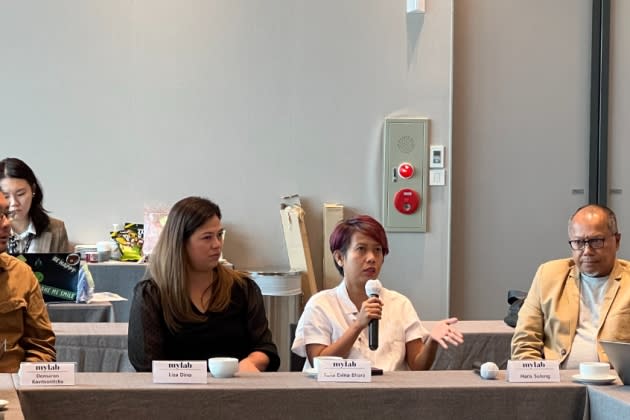Southeast Asian Producers on Increased Budgets for Independent Films, Local Challenges: ‘We Have to Hit it Hard Right Now’

A heavyweight producers panel discussed the modalities of producing independent films in Southeast Asia at a mylab panel on the sidelines of the Busan International Film Festival on Thursday.
Panelists included: Liza Diño, former chair of Film Development Council of the Philippines (FDCP) who had greenlit several films during her tenure; Indonesia’s Yulia Evina Bhara, producer of Venice-winner “Autobiography” that’s also playing at Busan; Thailand’s Donsaron Kovitvanitcha, producer of Locarno and Busan title “Arnold is a Model Student,”; and Malaysia’s Haris Sulong, producer of “Beautiful Mind.” The discussion was moderated by Variety Asia editor Patrick Frater.
More from Variety
Big Budget 'Bogota' Adorns Megabox Plus M's Busan Sales Slate
Kalki Koechlin, Deepti Naval Star in Dementia Focused Busan Selection 'Goldfish'
Bhara said that the entry of giant global streamers into the region has had a positive effect on the quality of productions and has also driven up budgets. Where once $100,000 was considered a high budget for independent films, now they can touch $900,000-$1 million, Bhara said. Much of the funding comes from Southeast Asian agencies like the FDCP and Singapore’s IMDA, and from European funds. However, the funds also come with spending obligations in the country of origin and the challenge is to work out how to maximize them and bring them to the country of production, Bhara said.
Diño concurred and said that budgets in the Philippines for independent films have also gone up to $1 million and going international allows filmmakers to realize their cinematic visions with apposite budgets. “If we align with international producers, our valuation with the streamers go up,” Dino said.
Government-backed film agencies like the FDCP don’t exist in all Southeast Asian countries. In Thailand, for example, government support for film is “scattered,” Kovitvanitcha said, adding that development has to be privately funded and is often the preserve of the wealthy.
In countries where government support does exist, like in Malaysia, which has FINAS (National Film Development Corporation Malaysia), there are generous disbursements towards labs and other development initiatives, but sometimes policy continuity can be affected when political power changes hands, Sulong said.
“The fear is with that change – so with the next minister, we don’t know what change will come. But the grant will still be there,” Sulong said, adding that the current grants panel is good and has the ability to visualize concepts that are pitched to them.
Overall, the mood was that of cautious optimism. “There’s this energy coming from Southeast Asia right now that we just really have to embrace,” said Diño. “And we need that impetus – we need to galvanize and we have to hit it hard right now.”
Best of Variety
Constance Wu Gets Candid in Revealing New Memoir 'Making a Scene'
The Best Pop Culture Halloween Costumes for 2022: From 'House of the Dragon' to 'Euphoria'
Sign up for Variety’s Newsletter. For the latest news, follow us on Facebook, Twitter, and Instagram.

 Yahoo Movies
Yahoo Movies 